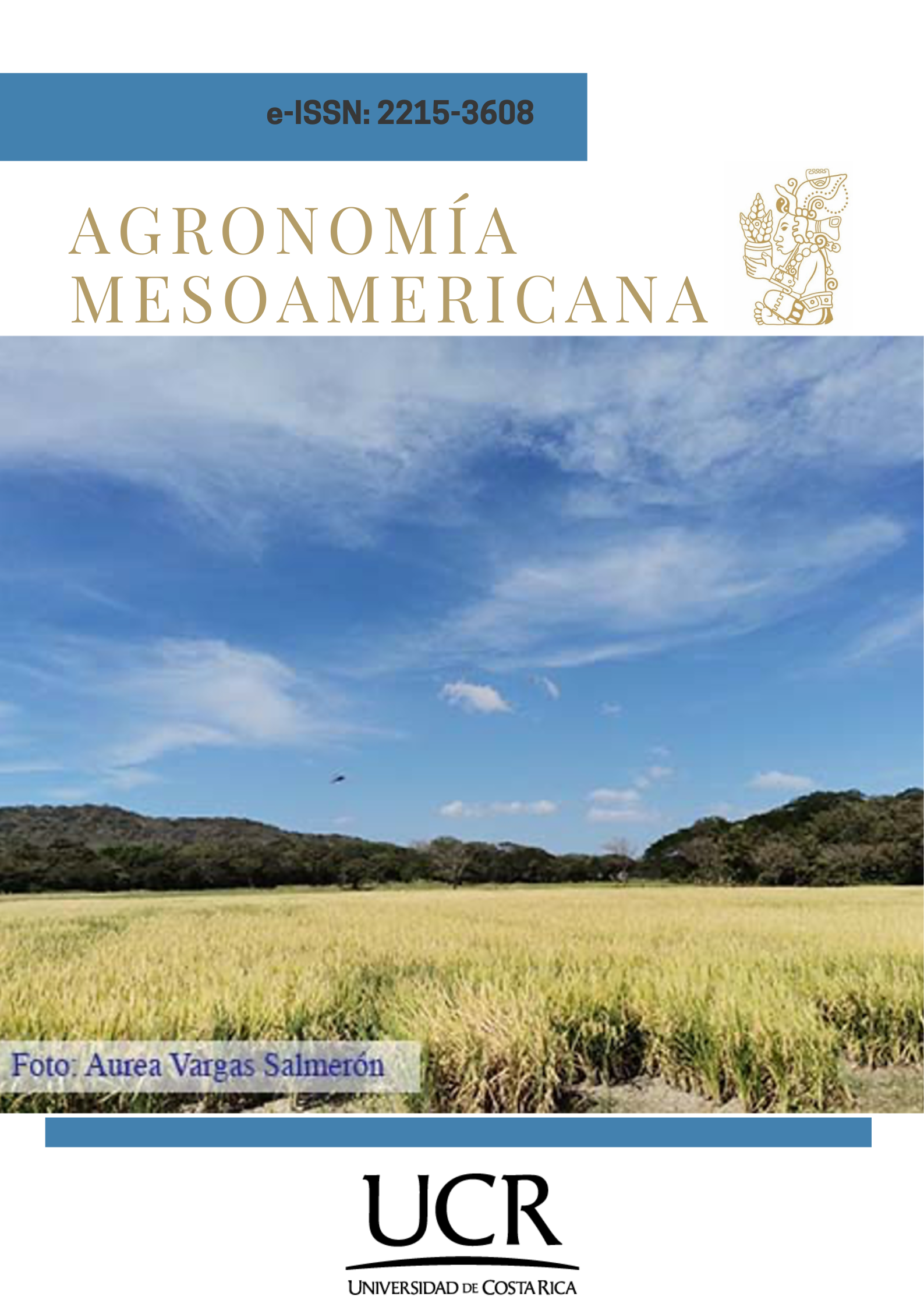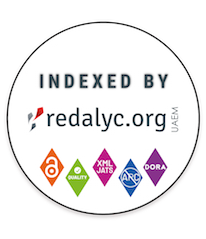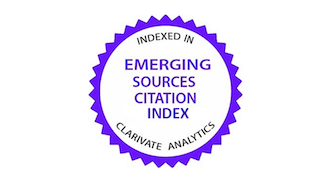Factors influencing the adoption of sustainable practices in rice cultivation in Costa Rica
DOI:
https://doi.org/10.15517/am.2024.56879Keywords:
technology adoption, agricultural practices, climate proofing, sustainabilityAbstract
Introduction. Sustainable practices are important tools for mitigating and adapting to climate change, making it essential to understand the factors influencing rice producers’ decisions to adopt conservation practices in their production system. Objective. To determine the causal relationships between variables that explain the adoption of conservation practices by rice producers. Materials and methods. A study was conducted between July and September 2021 in rice production systems in Costa Rica, involving producers from the Brunca, Chorotega, Huetar, and Central Pacific regions through quota sampling. A survey was administered to a total of 67 rice producers. The research was quantitative, identifying degrees of adoption of conservation practices, performing cluster groupings, and using an ordered probit model was to analyze the factors influencing the intensity of adoption of conservation technologies or practices in these production systems. Results. Greater adoption of conservation practices in rice production systems was influenced by the producer’s level of education, membership or affiliation with organizations in rice sector, and land ownership. Conclusions. The design of strategies for conservation practice in rice cultivation benefits from a better understanding of the relationships between socioeconomic, productive, and environmental variables, which can increase the likelihood that a producer will implement and maintain these conservation practices over time.
Downloads
References
Abdulai, S., Zakariah, A., & Donkoh, S. A. (2018). Adoption of rice cultivation technologies and its effect on technical efficiency in Sagnarigu District of Ghana. Cogent Food and Agriculture, 4(1), Article 1424296. https://doi.org/10.1080/23311932.2018.1424296
Alam, M. K., Bell, R. W., & Biswas, W. K. (2019). Increases in soil sequestered carbon under conservation agriculture cropping decrease the estimated greenhouse gas emissions of wetland rice using life cycle assessment. Journal of Cleaner Production, 224, 72–87. https://doi.org/10.1016/j.jclepro.2019.03.215
Alarcón, R., Hernández-Plaza, E., Navarrete, L., Sánchez, M. J., Escudero, A., Hernanz, J. L., Sánchez-Giron, V., & Sánchez, A. M. (2018). Effects of no-tillage and non-inversion tillage on weed community diversity and crop yield over nine years in a Mediterranean cereal-legume cropland. Soil and Tillage Research, 179, 54–62. https://doi.org/10.1016/j.still.2018.01.014
Alauddin, M., & Sarker, M. A. R. (2014). Climate change and farm-level adaptation decisions and strategies in drought-prone and groundwater-depleted areas of Bangladesh: An empirical investigation. Ecological Economics, 106, 204–213. https://doi.org/10.1016/j.ecolecon.2014.07.025
Ali, H., Menza, M., Hagos, F., & Haileslassie, A. (2022). Impact of climate-smart agriculture adoption on food security and multidimensional poverty of rural farm household in the Central Rift Valley of Ethiopia. Agriculture & Food Security, 11, Article 62. https://doi.org/10.1186/s40066-022-00401-5
Apraku, A., Morton, J. F., & Apraku Gyampoh, B. (2021). Climate change and small-scale agriculture in Africa: Does indigenous knowledge matter? Insights from Kenya and South Africa. Scientific African, 12, Article e00821. https://doi.org/10.1016/j.sciaf.2021.e00821
Aryal, J. P., Jat, M. L., Sapkota, T. B., Khatri-Chhetri, A., Kassie, M., Rahut, D. B., & Maharjan, S. (2018). Adoption of multiple climate-smart agricultural practices in the Gangetic plains of Bihar, India. International Journal of Climate Change Strategies and Management, 10(3), 407–427. https://doi.org/10.1108/IJCCSM-02-2017-0025
Aseres, M. E., Liu, A., & Mwalupaso, G. E. (2019). Adoption of sustainable intensification practices and its effect on smallholders’ food security in Ethiopia. Applied Ecology and Environmental Research, 17(3), 6681–6700. https://doi.org/10.15666/aeer/1703_66816700
Awotide, B. A., Karimov, A. A., & Diagne, A. (2016). Agricultural technology adoption, commercialization and smallholder rice farmers’ welfare in rural Nigeria. Agricultural and Food Economics, 4(1), Article 3. https://doi.org/10.1186/s40100-016-0047-8
Belay, A., Recha, J. W., Woldeamanuel, T., & Morton, J. F. (2017). Smallholder farmers’ adaptation to climate change and determinants of their adaptation decisions in the Central Rift Valley of Ethiopia. Agriculture and Food Security, 6, Article 24. https://doi.org/10.1186/s40066-017-0100-1
Benitez-Altuna, F., Trienekens, J., Materia, V. C., & Bijman, J. (2021). Factors affecting the adoption of ecological intensification practices: A case study in vegetable production in Chile. Agricultural Systems, 194, Article 103283. https://doi.org/10.1016/j.agsy.2021.103283
Bongiorno, G., Bünemann, E. K., Oguejiofor, C. U., Meier, J., Gort, G., Comans, R., Mäder, P., Brussaard, L., & de Goede, R. (2019). Sensitivity of labile carbon fractions to tillage and organic matter management and their potential as comprehensive soil quality indicators across pedoclimatic conditions in Europe. Ecological Indicators, 99, 38–50. https://doi.org/10.1016/j.ecolind.2018.12.008
Bopp, C., Engler, A., Poortvliet, P. M., & Jara-Rojas, R. (2019). The role of farmers’ intrinsic motivation in the effectiveness of policy incentives to promote sustainable agricultural practices. Journal of Environmental Management, 244, 320–327. https://doi.org/10.1016/j.jenvman.2019.04.107
Brant, R. (1990). Assessing proportionality in the proportional odds model for ordinal logistic regression. Biometrics, 46(4), 1171–1178. https://doi.org/10.2307/2532457
Carlisle, L. (2016). Factors influencing farmer adoption of soil health practices in the United States: a narrative review. Agroecology and Sustainable Food Systems, 40(6), 583–613. https://doi.org/10.1080/21683565.2016.1156596
Chen, Z. -D., & Chen, F. (2022). Socio-economic factors influencing the adoption of low carbon technologies under rice production systems in China. Carbon Balance and Management, 17, Article 19. https://doi.org/10.1186/s13021-022-00218-6
Chenu, C., Angers, D. A., Barré, P., Derrien, D., Arrouays, D., & Balesdent, J. (2019). Increasing organic stocks in agricultural soils: Knowledge gaps and potential innovations. Soil and Tillage Research, 188, 41–52. https://doi.org/10.1016/j.still.2018.04.011
Corporación Arrocera Nacional. (2022). Informe anual estadístico 2020-2021. Corporación Arrocera Nacional.
Cramér, H. (1999). Mathematical methods of statistics (Vol. 9). Princeton University Press.
Daloǧlu, I., Nassauer, J. I., Riolo, R. L., & Scavia, D. (2014). Development of a farmer typology of agricultural conservation behavior in the american corn belt. Agricultural Systems, 129, 93–102. https://doi.org/10.1016/j.agsy.2014.05.007
Delaroche, M. (2020). Adoption of conservation practices: what have we learned from two decades of social-psychological approaches? Current Opinion in Environmental Sustainability, 45, 25–35. https://doi.org/10.1016/j.cosust.2020.08.004
Donkoh, S. A., Azumah, S. B., & Awuni, J. A. (2019). Adoption of improved agricultural technologies among rice farmers in Ghana: a multivariate probit approach. Ghana Journal of Development Studies, 16(1), 46–67. https://doi.org/10.4314/gjds.v16i1.3
Etsay, H., Negash, T., & Aregay, M. (2019). Factors that influence the implementation of sustainable land management practices by rural households in Tigrai region, Ethiopia. Ecological Processes, 8, Article 14. https://doi.org/10.1186/s13717-019-0166-8
Fagerland, M. W., & Hosmer, D. W. (2016). Tests for goodness of fit in ordinal logistic regression models. Journal of Statistical Computation and Simulation, 86(17), 3398–3418. https://doi.org/10.1080/00949655.2016.1156682
Foguesatto, C. R., Rossi Borges, J. A., & Dessimon Machado, J. A. (2020). A review and some reflections on farmers’ adoption of sustainable agricultural practices worldwide. Science of the Total Environment, 729, Article 138831. https://doi.org/10.1016/j.scitotenv.2020.138831
Hosmer, D. W., & Lemeshow, S. (2000). Applied logistic regression (2nd ed). John Wiley & Sons. https://doi.org/10.1002/0471722146
Jambo, I. J., Groot, J. C. J., Descheemaeker, K., Bekunda, M., & Tittonell, P. (2019). Motivations for the use of sustainable intensification practices among smallholder farmers in Tanzania and Malawi. NJAS - Wageningen Journal of Life Sciences, 89(1), 1–10. https://doi.org/10.1016/j.njas.2019.100306
Janssen, E., & Swinnen, J. (2019). Technology adoption and value chains in developing countries: Evidence from dairy in India. Food Policy, 83, 327–336. https://doi.org/10.1016/j.foodpol.2017.08.005
Kassie, M., Jaleta, M., Shiferaw, B., Mmbando, F., & Mekuria, M. (2013). Adoption of interrelated sustainable agricultural practices in smallholder systems: Evidence from rural Tanzania. Technological Forecasting and Social Change, 80(3), 525–540. https://doi.org/10.1016/j.techfore.2012.08.007
Kruskal, W. H., & Wallis, W. A. (1952). Use of ranks in one-criterion variance analysis. Journal of the American Statistical Association, 47(260), 583–621. https://doi.org/10.1080/01621459.1952.10483441
Kumar, N., Chhokar, R. S., Meena, R. P., Kharub, A. S., Gill, S. C., Tripathi, S. C., Gupta, O. P., Mangrauthia, S. K., Sundaram, R. M., Sawant, C. P., Gupta, A., Naorem, A., Kumar, M., & Singh, G. P. (2021). Challenges and opportunities in productivity and sustainability of rice cultivation system: a critical review in Indian perspective. Cereal Research Communications, 50, 573–601. https://doi.org/10.1007/s42976-021-00214-5
Kumar, S., Raj Singh, D., Singh, A., Prakash Singh, N., & Kumar Jha, G. (2020). Does adoption of soil and water conservation practice enhance productivity and reduce risk exposure? Empirical evidence from semi-arid tropics (SAT), India. Sustainability, 12(17), Article 6965. https://doi.org/10.3390/SU12176965
Li, Q., Zeng, F., Mei, H., Li, T., & Li, D. (2019). Roles of motivation, opportunity, ability, and trust in the willingness of farmers to adopt green fertilization techniques. Sustainability, 11(24), Article 6902. https://doi.org/10.3390/su11246902
Lipsitz, S. R., Fitzmaurice, G. M., & Molenberghs, G. (1996). Goodness-of-fit tests for ordinal response regression models. Journal of the Royal Statistical Society. Series C: Applied Statistics, 45(2), 175–190. https://doi.org/10.2307/2986153
Lu, J., Ranjan, P., Floress, K., Arbuckle, J. G., Church, S. P., Eanes, F. R., Gao, Y., Gramig, B. M., Singh, A. S., & Prokopy, L. S. (2022). A meta-analysis of agricultural conservation intentions, behaviors, and practices: Insights from 35 years of quantitative literature in the United States. Journal of Environmental Management, 323, Article 116240. https://doi.org/10.1016/j.jenvman.2022.116240
Lu, Q. -q, Song, Y. -f., Pan, K. -q., Li, Y., Tang, M. -x., Zhong, G. -h., & Liu, J. (2022). Improved crop protection and biodiversity of the agroecosystem by reduced tillage in rice paddy fields in southern China. Journal of Integrative Agriculture, 21(8), 2345–2356. https://doi.org/10.1016/S2095-3119(21)63802-9
MacQueen, J. (1967). Some methods for classification and analysis of multivariate observations. In L. M. Le Cam, & J. Neyman (Eds.), Proceedings of the 5th Berkeley Symposium on Mathematical Statistic and Probability (pp. 281–297). Duke University Press. https://digitalassets.lib.berkeley.edu/math/ucb/text/math_s5_v1_article-17.pdf
Marie, M., Yirga, F., Haile, M., & Tquabo, F. (2020). Farmers´ choices and factors affecting adoption of climate change adaptation strategies: evidence from northwestern Ethiopia. Heliyon, 6(4), Article e03867. https://doi.org/10.1016/j.heliyon.2020.e03867
Miah, M. A. M., Bell, R. W., Haque, E., Rahman, W., Sarkar, A. R., & Rashid, M. A. (2023). Conservation agriculture practices improve crop productivity and farm profitability when adopted by Bangladeshi smallholders in the Eastern Gangetic Plain. Outlook on Agriculture, 52(1), 11–21. https://doi.org/10.1177/00307270221150830
Mugumaarhahama, Y., Mondo, J. M., Cokola, M. C., Ndjadi, S. S., Mutwedu, V. B., Kazamwali, L. M., Cirezi, N. C., Chuma, G. B., Ndeko, A. B., Ayagirwe, R. B. B., Civava, R., Karume, K., & Mushagalusa, G. N. (2021). Socio-economic drivers of improved sweet potato varieties adoption among smallholder farmers in South-Kivu Province, DR Congo. Scientific African, 12, Article e00818. https://doi.org/10.1016/j.sciaf.2021.e00818
Organización de las Naciones Unidas para la Alimentación y la Agricultura. (2023, julio). Perspectivas de cosechas y situación alimentaria (No. 2). https://doi.org/10.4060/cc6806es
Oyetunde-Usman, Z., Olagunju, K. O., & Ogunpaimo, O. R. (2021). Determinants of adoption of multiple sustainable agricultural practices among smallholder farmers in Nigeria. International Soil and Water Conservation Research, 9(2), 241–248. https://doi.org/10.1016/j.iswcr.2020.10.007
Pearson, K. (1900). X. On the criterion that a given system of deviations from the probable in the case of a correlated system of variables is such that it can be reasonably supposed to have arisen from random sampling. The London, Edinburgh, and Dublin Philosophical Magazine and Journal of Science, 50(302), 157–175. https://doi.org/10.1080/14786440009463897
Prokopy, L. S., Floress, K., Arbuckle, J. G., Church, S. P., Eanes, F. R., Gao, Y., Gramig, B. M., Ranjan, P., & Singh, A. S. (2019). Adoption of agricultural conservation practices in the United States: Evidence from 35 years of quantitative literature. Journal of Soil and Water Conservation, 74(5), 520–534. https://doi.org/10.2489/jswc.74.5.520
Pulkstenis, E., & Robinson, T. J. (2004). Goodness-of-fit tests for ordinal response regression models. Statistics in Medicine, 23(6), 999–1014. https://doi.org/10.1002/sim.1659
R Core Team. (2022). R: A language and environment for statistical computing (4.2.1). R Foundation for Statistical Computing. https://www.R-project.org/
Ranjan, P., Gordon Arbuckle, J., Church, S. P., Eanes, F. R., Floress, K., Gao, Y., Gramig, B. M., Singh, A. S., & Prokopy, L. S. (2022). Understanding the relationship between land tenure and conservation behavior: Recommendations for social science research. Land Use Policy, 120, Article 106161. https://doi.org/10.1016/j.landusepol.2022.106161
Rossi Borges, J. A., Foletto, L., & Teixeira Xavier, V. (2015). An interdisciplinary framework to study farmers decisions on adoption of innovation: Insights from Expected Utility Theory and Theory of Planned Behavior. African Journal of Agricultural Research, 10(29), 2814–2825. https://doi.org/10.5897/ajar2015.9650
Siyum, N., Giziew, A., & Abebe, A. (2022). Factors influencing adoption of improved bread wheat technologies in Ethiopia: empirical evidence from Meket district. Heliyon, 8(2), Article E08876. https://doi.org/10.1016/j.heliyon.2022.e08876
Sunny, F. A., Fu, L., Rahman, S., Pemberai Karimanzira, T. T., & Zuhui, H. (2022). What influences Bangladeshi Boro rice farmers’ adoption decisions of recommended fertilizer doses: A case study on Dinajpur district. PLOS ONE, 17(6), Article e0269611. https://doi.org/10.1371/journal.pone.0269611
Syakur, M. A., Khotimah, B. K., Rochman, E. M. S., & Satoto, B. D. (2018). Integration K-Means clustering method and elbow method for identification of the best customer profile cluster. IOP Conference Series: Materials Science and Engineering, 336, Article 012017. https://doi.org/10.1088/1757-899X/336/1/012017
Thompson, N. M., Bir, C., Widmar, D. A., & Mintert, J. R. (2019). Farmer perceptions of precision agriculture technology benefits. Journal of Agricultural and Applied Economics, 51(1), 142–163. https://doi.org/10.1017/aae.2018.27
Thorndike, R. L. (1953). Who belongs in the family? Psychometrika, 18(4), 267–276. https://doi.org/10.1007/BF02289263
Wainaina, P., Tongruksawattana, S., & Qaim, M. (2016). Tradeoffs and complementarities in the adoption of improved seeds, fertilizer, and natural resource management technologies in Kenya. Agricultural Economics, 47(3), 351–362. https://doi.org/10.1111/agec.12235
Wilcoxon, F. (1945). Individual comparisons by ranking methods. Biometrics Bulletin, 1(6), 80–83. https://doi.org/10.2307/3001968
Zeng, Y., Tian, Y., He, K., & Zhang, J. (2020). Environmental conscience, external incentives and social norms in rice farmers’ adoption of pro-environmental agricultural practices in rural Hubei province, China. Environmental Technology, 41(19), 2518–2532. https://doi.org/10.1080/09593330.2019.1574907

Downloads
Additional Files
Published
How to Cite
Issue
Section
License
Copyright (c) 2024 Luz Barrantes-Aguilar, David Gómez-Castillo, Vanessa Villalobos-Ramos, Rodrigo Valdés-Salazar

This work is licensed under a Creative Commons Attribution-NonCommercial-NoDerivatives 4.0 International License.
1. Proposed policy for open access journals
Authors who publish in this journal accept the following conditions:
a. Authors retain the copyright and assign to the journal the right to the first publication, with the work registered under the attribution, non-commercial and no-derivative license from Creative Commons, which allows third parties to use what has been published as long as they mention the authorship of the work and upon first publication in this journal, the work may not be used for commercial purposes and the publications may not be used to remix, transform or create another work.
b. Authors may enter into additional independent contractual arrangements for the non-exclusive distribution of the version of the article published in this journal (e.g., including it in an institutional repository or publishing it in a book) provided that they clearly indicate that the work was first published in this journal.
c. Authors are permitted and encouraged to publish their work on the Internet (e.g. on institutional or personal pages) before and during the review and publication process, as it may lead to productive exchanges and faster and wider dissemination of published work (see The Effect of Open Access).



























